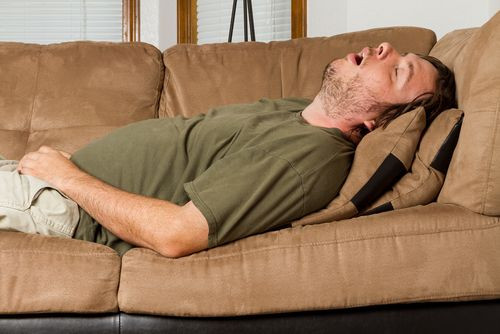How To Stop Snoring: Vocal Warm-ups And Singing Exercises Can Help You Snore No More

Snoring, a common sleep condition affecting nearly 60 percent of men and 40 percent of women by the age of 60, is the noise made when the soft palate and other loose tissue in the mouth, nose, and throat vibrate with each in-breath. After talking with a friend who complained of snoring, Alise Ojay, a composer and community choir director, designed a special program of vocal exercises intended to reduce snoring caused by lax muscles in the upper throat: Singing for Snorers. "The people most likely to get an excellent result are those who have started snoring as they get older," Ojay told The Smithsonian. "As we all discover, any area of our bodies we don’t exercise becomes lax, and our throats are no exception."
Sleep Hygiene
Sleep is a state characterized by little physical activity and almost no awareness of the outside world, and though doctors do not completely understand its significance, sleep is clearly essential for life. Sleep insufficiency, which has been linked to car accidents as well as occupational errors, is now recognized as a significant health problem. The National Institutes of Health advises school-age children require at least 10 hours of sleep each night, while teens need nine to 10 hours, and adults just seven-to-eight hours. Yet data derived from the 2005-2007 National Health Interview Survey found that nearly one-third (30 percent) of all adults reported an average of less than six hours of sleep per day. About the same percentage of high school students reported sleeping for at least 8 hours on an average school night.
People who routinely experience sleep insufficiency are not only inclined toward accidents and errors, but they are more likely to suffer from hypertension, diabetes, depression, obesity, cancer, and other chronic diseases. Studies have also found that under-achieving sleepers show increased rates of mortality and reduced rates of quality of life and productivity. Sleep hygiene, then, is central to your health.
A number of factors may cause a person to sleep for a shorter span than is deemed healthy, including round-the-clock work schedules and access to technology. To a certain extent, these can be controlled, but in other instances, sleep disorders, including insomnia, obstructive sleep apnea, or night terrors, may also interfere with sleep. (Snoring is considered to be a major indicator of obstructive sleep apnea.) In total, an estimated 50 to 70 million U.S. adults have sleep disorders.
The Simple End of Snoring
Ojay based her Singing for Snorers program on her knowledge of different singing traditions and techniques from around the world. Well-acquainted with her own throat, she understood how different vocal exercises affected her throat. Naturally, when her friend demonstrated his snoring problem, she wondered, "Would a well-toned throat vibrate in the same lax manner as displayed by her friend?" After speaking with Dr. Elizabeth Scott, who had experimented with singing exercises on her snoring patients, Ojay knew she was on the right path. Scott claimed to have had considerable success with her methods but had been unable to carry out a clinical trial. With the support of the University of Exeter, Alise conducted a pilot trial of her own program, which she developed through trial and error.
“I spent months experimenting with a mirror and my own throat, even though I knew which muscles I wanted to work," Ojay told The Smithsonian. “It was just a case of finding the exact sounds and pitch changes that grabbed and maximized the movement in those muscles.” To begin the trial, she recorded snoring duration in 20 chronic snoring subjects for seven nights before treatment. Then, she instructed the patients in therapeutic singing technique and exercises, which subjects practiced on their own for 20 minutes a day over a period of three months. Compliance was encouraged by regular telephone follow-ups, and at the conclusion of the therapy period, she once again recorded snoring duration for seven nights. What did she discover?
On average, snoring was reduced, especially in subjects who performed the exercises accurately and consistently and who were not overweight. Those who did best, in addition, had no nasal problems and had begun snoring only in middle age. Although Ojay believes her results were promising, she continued to investigate and refine her method. Her final product, Singing for Snorers, is available online.
Source: Ojay A, Ernst E. Can singing exercises reduce snoring? A pilot study. Complement Ther Med. 2000.
Published by Medicaldaily.com



























